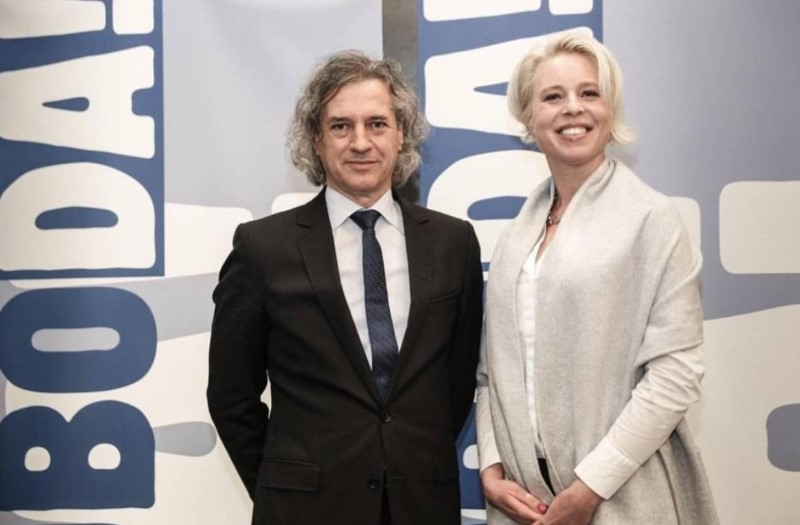Prime Minister Robert Golob confidently predicted a sweeping victory at the local elections, but in the end, his plan colossally failed. So far, only one of his candidates has won the election. “In the last local elections, 632 city councillors were elected on the lists of the Slovenian Democratic Party, all over Slovenia, but at the moment, the data show that more than 500 councillors have already been elected under the proportional system alone in the current election. This does not include the councillors who are elected under the majority voting system nor the data for about 15 percent of the municipalities, which means that we will surely surpass the results from four years ago in terms of numbers,” the President of the Slovenian Democratic Party (Slovenska demokratska stranka – SDS), Janez Janša, said at a press conference on Sunday.
According to Janez Janša, the local elections are just as important as the elections to the National Assembly, if not more, to the parties that are not just one-hit wonders. “The available data show that the SDS party will be the winner for the fifth time in a row in municipalities and city councils where seats are divided proportionally,” he added.
Slovenian Democratic Party is the winner of the municipal and city council elections
Regarding the mayoral elections, Janša pointed out that four years ago, 52 mayors who ran with the support of the SDS party were elected in the first round. At the moment, 45 candidates supported by our party have already been elected, but there are still no reliable data in municipalities where less than half of the votes have been counted so far,” he added, pointing out that he reckons that in addition to this, around 15 to 20 mayoral candidates who ran with the support of the SDS party could make it through to the second round of the elections.
And while Janša was pleased to announce the victory of the SDS party in terms of the number of city councillors, the largest coalition party, the Freedom Movement (Gibanje Svoboda), did not do as well as it expected to. Namely, the President of the party and Prime Minister Robert Golob is known to have confidently hoped for a sweeping victory when it comes to the local elections. But it seems that people are a bit reluctant when it comes to unknown parties with no experience and instead prefer to bet on those who have tons of experience already. Thus, despite its convincing victory in the elections to the National Assembly, the Freedom Movement party failed to win the local elections, in terms of the number of city councillors. They also only succeeded in electing one mayor – Alenka Kovač, who is also the current mayor of Osilnica.
Klakočar Zupančič failed to win a seat in the city council
During the evening vote count, investigative journalist Bojan Požar pointed out that, considering Robert Golob’s announcements, this would be quite a fiasco for him. Požar also pointed out a very interesting fact about the elections in Ljubljana, namely, that one of the most prominent faces of the Freedom Movement party, the Speaker of the National Assembly, Urška Klakočar Zupančič, was not even elected as a Ljubljana city councillor. “Golob’s people only got eight seats, and Urška Klakočar Zupančič was not elected as the city councillor. Evil tongues will say that she fell off her horse…” he commented on the results of the elections.
Looking at the data on the parties’ performance in the mayoral elections, we can see that the Slovenian People’s Party (Slovenska ljudska stranka – SLS), New Slovenia party (Nova Slovenija – NSi), and Slovenian Democratic Party did the best in the local elections. According to the State Election Commission, 13 of the mayors that were selected are members of the SLS party, 12 are from the SDS party, and 11 are from the NSi party. Among the parties of the ruling coalition, the Social Democrats party (Socialni demokrati – SD) managed to get the most mayors (10). The leading party Freedom Movement only managed to get one of its candidates elected, while the Left party (Levica) fared even worse, as not one of its 13 candidates was elected.
Perhaps the poor results of the Freedom Movement party could be attributed to the fiasco that occurred during the presentation of the mayoral candidates of the party in question. The head of the party’s electoral staff, Peter Majerle, explained to the
whole of Slovenia that their candidate list included candidates from the ranks of financial control (inspectors) and, worst of all, representatives of the judiciary. “The candidates come from various fields, from the judiciary and the economy to education and culture, as well as from financial control,” Majerle announced to the public. It seems that the nation has rebelled against the beginning of totalitarianism which would have brought about the fusing of branches of power. However, it seems that the Freedom Movement party is really not capable of any true self-reflection, as the Speaker of the National Assembly, Urška Klakočar Zupančič, said in her response that the party was satisfied with the results of the local elections – but added that she was “slightly less” satisfied with the voter turnout. This seems to be in line with the thinking of political analyst Miran Videtič, who commented on the elections, saying: “Tomorrow will mark another day of everyone claiming that they have won. Tonight, they are already thinking long and hard about how to ‘sell’ this to the media and the public.”
Sara Kovač


